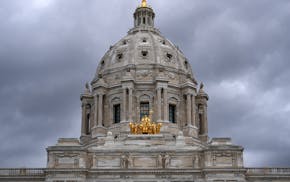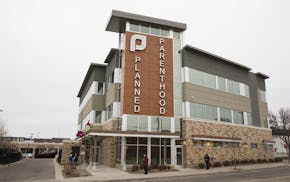Some University of Minnesota faculty members are questioning the selection process for the new provost, saying they believe it should have been more transparent and, unlike past appointments, the U didn't give the public a chance to meet and question final candidates.
Gretchen Ritter, the new provost, was chosen last week and will begin July 31, pending approval by the U's Board of Regents on June 12. The provost is the university's senior academic officer for the U's five-campus system and the president's second-in-command.
"If the community has not had the opportunity to provide any input on the selection process, they begin the job with a trust deficit," said Michael Gallope, a professor of cultural studies and comparative literature who served on the provost search committee.
He said it's essential for the community to hear publicly from provost candidates and their responses to questions, especially at a time when academic freedom and freedom of speech are being challenged at the U and other universities. It's more important than ever that the provost — who is the academic official "responsible for stewarding our values" — has broad community support, Gallope said.
"You have to be able to weigh your language, and you have to be able to do it in charged situations," he said of the provost role. "This is why ... having some public element would have been vastly preferable and also why, in past situations, that's always been the protocol."
In both 2011 and 2019, finalists for the provost position faced public forums or interviews. This year, "the final decision was dominated by senior administrators, not faculty, students and staff," Gallope said.
In a statement, a U spokesperson said a 20-person committee that included students, staff and university leaders completed the provost search.
"Searches for university administrators are most commonly confidential across our peer institutions as they yield larger candidate pools than traditional public searches," the U's statement said. "To attract top talent for this and other mission-critical roles, the University aligned its process to mirror this standard practice."
The process started with the search firm holding two public listening sessions to see what the community wanted in a new provost and then crafting a job description, said Gregg Goldman, co-chair of the search committee and the U's executive vice president for finance and operations.
"I know firsthand that the applicant pool is strong and I do fundamentally believe it would not have been as strong if we'd had a search process ... with [an] open forum," Goldman said.
Transparency vs. quality candidates?
Ritter previously served as provost at Syracuse University for nearly three years but stepped into a less prominent role — vice president for civic engagement and education — there in 2024. At the U, she will replace Rachel Croson.
In June 2024, the Faculty Senate voted to express no confidence in Croson; at the same time, the group also voted no confidence in then-interim President Jeff Ettinger. The votes occurred amid ongoing debate over academic freedom and tensions over the Israel-Hamas war.
National search firm Isaacson, Miller helped conduct the provost search. The search committee started with 49 applicants and whittled that number down to 21.
From there, nine candidates had Zoom interviews with the committee; four had additional interviews, Goldman said. Those four met with U administrators, community stakeholders and chancellors of the other four campuses. It's up to President Rebecca Cunningham to make the decision, but the Board of Regents must give the final approval.
Jennifer Goodnough, a chemistry professor at the U's Morris campus, is chair of a faculty committee that had a hand in choosing the provost.
She and members of the faculty consultative committee — which is elected by faculty — met with the search firm. Later, she and the faculty committee's co-chair also asked questions of the finalists and provided feedback to Cunningham, Goodnough said.
She said whether that committee's weigh-in provided enough faculty representation in the process depends on who you ask. She was also on the provost search committee in 2019 that selected Croson.
Goodnough said that process was more open, which was typical then. Now, administrative searches are done confidentially, she said.
"Yes, it's different, but I would say higher ed is different, too," Goodnough said.
Eric Schwartz, the former Humphrey School of Public Affairs dean who is now a public affairs professor, also served on the search committee and said committee members raised concerns that there wasn't a public process.
He knows the purpose was to encourage the "very best candidates to come forward without fear that their institutions would know" they're looking for another job, but he doesn't agree with that rationale, Schwartz said.
"I think the benefits in transparency far outweigh the downsides of discouraging candidates," he said.

Lawsuit against Scheels over teen's suicide in Eden Prairie store allowed to proceed to trial
Within Pete Hegseth's divided inner circle, a 'cold war' endures
Plea deal means probation for teen whose daredevil 'drifts' on Twin Cities road killed passenger

Minnesota legislators scramble to pass budget before layoff notices go out to state workers
